PRESERVING A MILITARY LEGACY FOR FUTURE GENERATIONS
The following Reflections represents SSG Trey W. Franklin’s legacy of his military service from 1998 to 2008. If you are a Veteran, consider preserving a record of your own military service, including your memories and photographs, on Togetherweserved.com (TWS), the leading archive of living military history. The following Service Reflections is an easy-to-complete self-interview, located on your TWS Military Service Page, which enables you to remember key people and events from your military service and the impact they made on your life. Start recording your own Military Memories HERE.
Please describe who or what influenced your decision to join the Army.
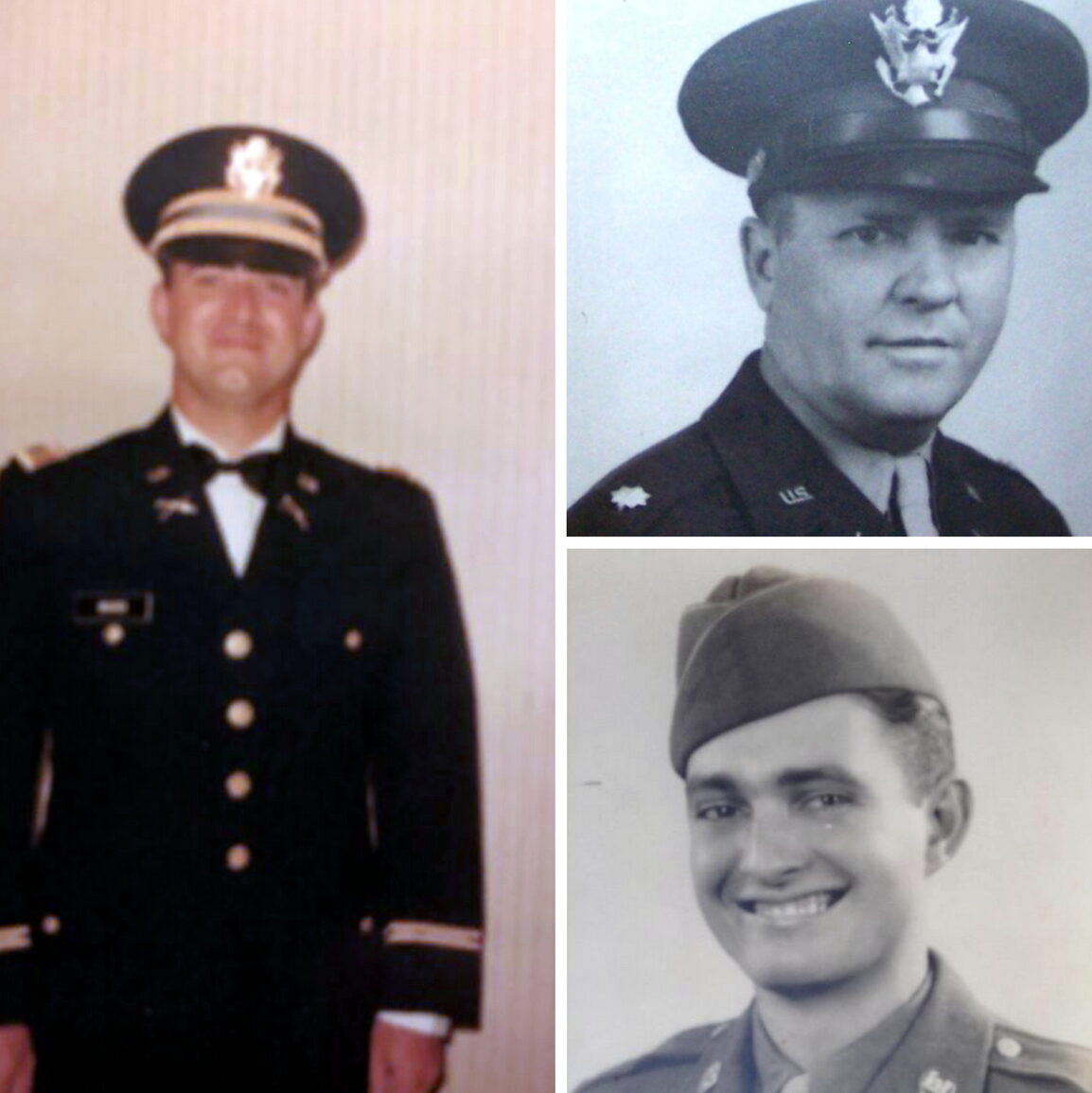
My family has a long tradition of military service. My Father most heavily influenced me, and most of my memories of him are of him going to or coming home from drill with the TXARNG on the weekends.
My grandfathers were also in the Army, as were some of my extended family. My mother’s dad served during WWI and had to fight the system to go back on active duty in WWII. He won that fight, but they wouldn’t let him deploy overseas because of his age, so he stayed in the states as a counter-intelligence officer and was probably one of the oldest Majors on active duty.
My Father’s Dad was in Burma in WWII and was an engineer building the pipeline that ran along the Ledo Road. I think it profoundly affected him for the rest of his life. He never talked about it and would change the subject if it got brought up.
One of my relatives participated in the original flag raising on Iwo Jima in WWII. All of them have profiles here on TWS, listed on my profile.
My goal since I can remember was to be in the Army, and I was an avid reader of military history and anything Army growing up. As a kid in school, a group of us wore military fatigue tops and had a little click of military brats going.
I tried to enlist at 17, but my mother and step-dad wouldn’t sign for me, so I had to wait till I turned 18. When I finally enlisted, my original MOS was Psychological Operations with Airborne. I was told I had to take the DLAB test before I shipped out to basic. Unfortunately, nobody told me how difficult that test was or what it was about, so, as a dumb 18-year-old, I got snot-slinging drunk at the MEPS hotel the night before the test. The DLAB is not the test you should take with a hangover. So, I didn’t get a qualifying score to reserve my original MOS and had to pick another one or wait several months and try the DLAB again. Being 18 and impatient, I chose to select another and get going. My recruiter was a 13F and said I’d enjoy Artillery Survey, so I went with that.
Funnily enough, almost 20 years later, when I was a recruiter myself, I would give kids a super heads up if they needed the DLAB. I gave them all kinds of info on that test, and I didn’t want them to bomb it as I did!
Whether you were in the service for several years or as a career, please describe the direction or path you took. What was your reason for leaving?

I started out intending to go into some type of airborne unit since I botched the opportunity when I enlisted. I was in light units my first tour in Korea at Camp Pelham, and we got to do a lot of air assault missions. I was in the most forward-deployed artillery battalion in the world at that time, and we were north of the Imjin all the time doing stuff. That assignment confirmed that airborne/air assault was “my world,” and I loved it. I was considered a “hard-charger” by my leaders and peers and requested attachment to an infantry battalion as a forward observer on the DMZ. Fortunately, my CSM loved me, as did my 1SG, so they let me fill a 13F slot for 2 months at Camp Greaves, and even though Greaves was only a few miles from Pelham, it was on the north side of Freedom Bridge, and patrolled the southern boundary of the MDL, so I wanted a piece of that.
In addition to being on Greaves, I also had already been up in the DMZ and JSA on artillery survey business, and we got to do a lot of stuff all around the MACHA and JSA. That was all super high speed for a brand new kid, so I was excited about it.
We also ran 4 Papa 3, which was the only live artillery firebase back then. I also did missions on 4P1, which was the mortar base on the other side of the street from Camp Greaves a bit. I accidentally walked into a live minefield once while doing survey stuff. The fence (one strand of barbed wire, about knee high) had gone down, and I was looking for a survey control point in tall grass. I looked behind me, and there was a triangle mine sign in the grass. I retraced my steps out with no harm, haha. A kid in a Radar unit wasn’t so lucky a few months later. They were setting up a radar system, and the rains had washed mines down out of a minefield, and he hit one with a shovel. He survived, although I don’t know what happened after we medevaced him out. I popped smoke for the evac, but that was about it.

When I got back stateside, it was a little disheartening, as I landed in a mechanized Division (5ID) at Fort Polk (insert joke here about 2 hardship tours in a row…lol). That was like going from 5th gear to reverse! Mech infantry was not my thing, and I was not a happy camper initially.
Numerous requests for attending airborne, air assault, and pathfinder schools were shot down at division – they didn’t want to pay the TDY when I didn’t have a valid slot for those ASI/SQIs. Around 1991, I decided that the only way I was going to get to those schools and be where I wanted was to go for Special Forces, so I began a pretty ridiculous training program (too much, too fast) and ended up tearing my lateral meniscus to the point that it was barely fixable. That pretty much ended any hope of going airborne or SF for me, so I decided to buckle down in reality and become the tactical expert and the SME for my MOS.
I never thought seriously about getting out before 20 years. My first two enlistments were 6 years each. I wouldn’t recommend that for anyone, however, as you get locked in and can’t get cool re-up bonuses, and I got screwed every time I re-enlisted. Haha.
So, by the time I finished my 2nd enlistment, I was already in year 12. What’s another 8? It all went by so fast, and I can hardly believe it still. In some ways, those 20 years seem like another universe.
If you participated in any military operations, including combat, humanitarian and peacekeeping operations, please describe those which made a lasting impact on you and, if life-changing, in what way?

As I said above, my first assignment in Korea shaped my attitude in a major way. I was all about taking the fight to the bad guy. I made my Soldiers do infantry battle drills constantly, which was before OEF/OIF. I think some of them probably thought I was nuts making them react to and assault through ambushes, mounted and dismounted, and making them clear buildings, etc. These are not normal tasks for artillery guys, and they didn’t appreciate it much, but I knew whatever we got into next was going to be not normal. Believe it or not, the book and movie Black Hawk Down confirmed my belief that you better be ready for anything outside the wire downrange. I would, years later, be proven 100% correct.
I missed Panama because I was en route from Korea to CONUS when that kicked off. I missed ODS and the 1st “Persian excursion” because of the stupid Louisiana national guard. If you are reading this, and you were in the 256th infantry in 90-91, you screwed me out of deploying.
The 256th was our (5th Infantry Division) “round-out” brigade, so when ODS started, they got activated, and we had to train them and certify all their crews in gunnery, tank tables, etc. We moved with them to Fort Hood from Polk as 5ID (Fwd) and began training for deployment to Saudi Arabia. After Hood, we were supposed to do a quick run-through NTC and deploy.

Well, the 256th Louisiana guard were not happy campers with us at Hood. We didn’t give them enough time off, and we didn’t give them days off; we made them train in the rain and cold… on and on. We had one crew combat lock the hatch on their vehicle and refused to train until they got a day off. Finally, a group of them chartered a bus and went AWOL. No kidding. Look it up. So long story short, they screwed up our schedule, and we didn’t make it to the theater before the war started and ended. So thanks for jacking that up for me, 256th…
Every other deployment the Army participated in after that, I was on the wrong base or wrong country to go. It got to where I was telling people around me that they wouldn’t deploy as long as I was in the unit. 9/11 changed all that.
Later on, I was in Iraq from the invasion in 2003 to 2004. I finally got to use the skills I had been sharpening for 15 years. I was in 4/42 FA, 1st BCT, 4ID, and we were on constant raids and patrols in the Tikrit area of Iraq. Initially, we were at Taji until we cleared and secured it, then we went north, less Battery B, to Ad Dawr and set up FOB Arrow. We conducted infantry-type operations in that sector, although we did have the occasional artillery mission.
We went all over the Sunni Triangle from FOB Arrow, and I managed to get up to Bayji on some artillery & mortar/radar missions. We generally stayed in an area ranging from Samarra to just north of Tikrit, on the east side of the Tigris.
In the Summer of 2003, our BN CDR decided we needed to employ more serious counter-IED and counter-insurgency measures, so I was selected to be in charge of and form a few sniper teams for our BN. I was given a crash course on how not to die by the snipers in 1/22 Infantry and got an SVD. We spent countless hours on night missions all over our sector, watching patrols, ICDC operations, raids, etc. It got pretty exciting a few times.
Did you encounter any situation during your military service when you believed there was a possibility you might not survive? If so, please describe what happened and what was the outcome.

Nothing that I didn’t expect to happen. By the time I finally got to deploy to a 2-way rifle range, I had been preparing for about 15 years professionally to be in combat, and I felt confident and ready for it.
The first few times, we received incoming mortars, and the occasional rocket was high on the pucker factor, as you’d expect. We didn’t get it as bad on Arrow as they did on a smaller outpost we had in Samarra, but it was enough to make you pay attention for sure.
I was engaged a few times by medium machine-gun fire (PK), and that was undoubtedly more concerning. Most of the stuff coming my way was AK fire, which was never very accurate. They wouldn’t go toe to toe with us if they could help it, so it was all hit and run crap while patrolling and things like that.
OIF for us back then was sort of like the Wild West. We didn’t have up-armored stuff until we were leaving, so when mounted, we ran around in soft vehicles with no doors, with one foot literally dragging the ground, ready to dismount and kick ass. Dismounted stuff was generally at night, and at night we operated in small groups of 2 to 4 men. We set up OP/LPs around the city every night, and inside the town, we did counter IED and counter-insurgency overwatch of intersections and roads. This was in addition to numerous raids looking for the deck of cards, and later in the tour, I was kicking out every night for sniper missions all over our sector. We also provided security for our command team when they had to go to brigade or division HQ, so we were pretty busy.
I have since read that 4ID got some flak for being “too aggressive” in our sector. Whatever. The word was out among the bad guys not to screw with 4ID, 1st BCT, and those who got their asses handed to them. Ask anyone in the Tikrit area.
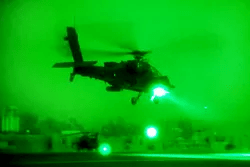
Once in a while, on an over-watch position at night on a rooftop, we were picked out by a nearby Apache helicopter, and our S3 didn’t tell anyone on the airside that we were in the vicinity. Thankfully we were able to signal them via infrared strobe and avoided a friendly fire incident. A similar instance occurred with a Bradley Fighting Vehicle, which had its cannon pointed directly at our position in a ruined building at night, and we successfully signaled them also.
The bad guys in Iraq sucked at firefights, in my opinion. IEDs were just becoming a thing late into my tour, so our main threat was direct fire and mortars. We did lose one of our soldiers to an AT mine and 3 others in an ambush with RPGs and small arms fire.
Some grenades got tossed occasionally, and we had an ICDC kid get shot in the ankle while diving for cover from a grenade.
Most of the RPGs shot at me personally were either too far away to be accurate or, if they were close, wildly inaccurate. We had one skip under a truck once down an alley.
Most importantly, all of my years of training paid off. Being prepared for anything also paid off. I never let my guys or me leave the FOB without doing pretty constipated PCCs. 7 am, and you are going out for 2 hours? You are taking your night vision with you, etc. I was often heard saying, “I saw Black Hawk Down,” and we never went anywhere without the ammo, water, and gear to duke it out long haul or all night if we had to. I personally carried about 400 rounds for whatever rifle (not the SVD) and 100 pistol rounds. I changed up between an M4, M16, AK, and SVD as I saw fit, depending on what I was doing, and sometimes carried both my M4 or the AK and the SVD as well if I had a funny feeling, but I always had a pistol also. Better safe than sorry. We used captured weapons a lot. Almost half the tour, I carried a captured Browning Hi-Power 9mm, and later switched to an M9 (I had to give the Browning to the Iraqi police once we let them start carrying weapons again).
My SVD was definitely not new, but it initially had great rifling but no scope. Every scope I found was garbage. I finally got my wife to buy one for it stateside (from Russia) and mail it to me. That did the trick, and it was awesome. Illuminating reticle, standard SVD range markings. Pretty accurate for using belted 7.62x54R that I un-linked. We had a lot of latitude on weapons. When mounted, we generally didn’t have a crew-served weapon until we were getting ready to leave and got the up-armored stuff. So, we loaded for bear whenever we left.
We did have a semi-static OP close to town on a big dirt hill, and we generally had an LRAS and either a .50 or MK19 up there as well. They were pretty handy for spotting movement we could see sometimes, and they’d get into the fight if they could with the 50 or MK19 if possible, too, so that was nice. The bad thing is they couldn’t see in town much, just around the south and east side of it. If we got into town, we were on our own until a QRF could get there. Sometimes that took forever.
Of all your duty stations or assignments, which one do you have fondest memories of and why? Which was your least favorite?
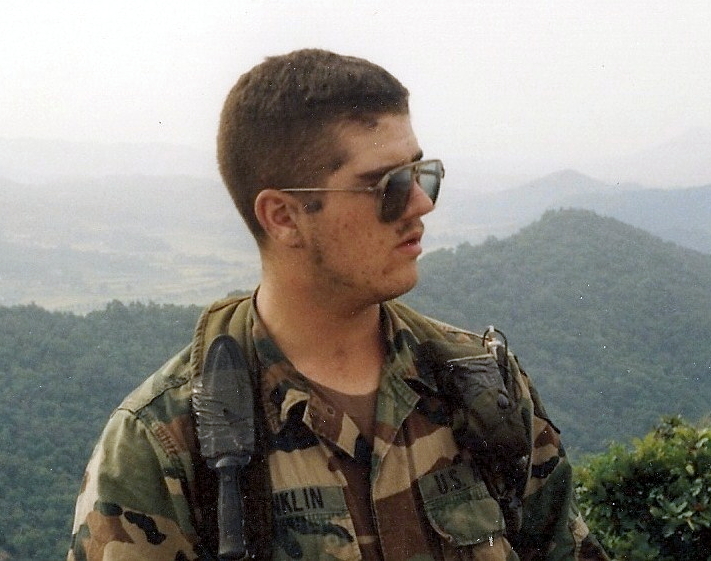
I really liked Korea the first time around in 1988. That was a full-on “Cold War” assignment, with my unit in direct artillery support of our piece of the DMZ. I got to go in and around the MACHA and DMZ/JSA areas a lot, which was pretty cool for an 18-year-old PV2. I also learned the most about the Army and my MOS during that short 12-month assignment. Almost all of the leaders were Vietnam veterans, and they made me smart and trained me well. I feel honored to have served with those men. I “grew up” during that assignment.
My least favorite was Polk, but looking back, I was probably too harsh on the place. The fishing was good, and I went out and did a lot of hunting too, and the mechanized aspect just bothered me at the time.
The second place for worst was Recruiting duty. The location was awesome, but the hours were terrible. I got lucky and landed in the not-crazy part of California, between Folsom and South Lake Tahoe. Lots of scenery, mountains, and snow. The recruiting part wasn’t too bad considering a war was going on (04-08), and we were the top small station in our company many times. I was not fond of the 14 to 16-hour days sometimes, and I don’t know how many miles I drove my G car, but it was a lot. I was a successful recruiter and got all the stuff they give you (medallion, ring, etc.), and I never lied to a kid. I always shot straight with them; if they didn’t like it, there’s the door. We developed a good reputation in the community and local schools. We did have a couple of guys we enlisted get killed in action shortly after they enlisted, and we went to the funerals. That was tough to see on their families, but their support never wavered. I was not a fan of the pressure from higher on quotas, but we did well enough there that it wasn’t an issue for us, really. We made mission every month.
From your entire military service, describe any memories you still reflect back on to this day.
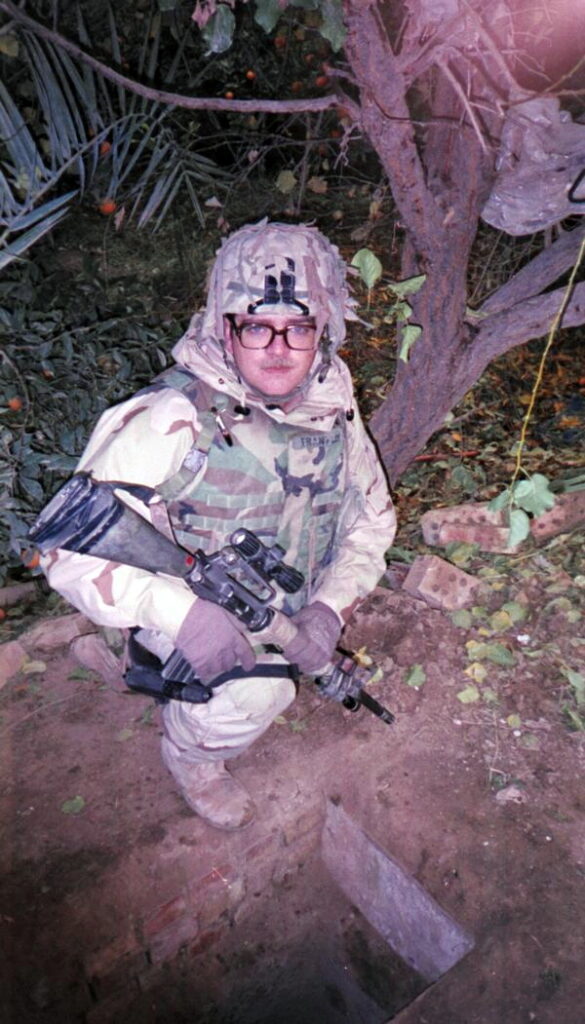
I was getting to do cool things. When I was in 5ID, we were on the ceremonial cannon detachment, so we traveled all over the south doing high-profile burials, memorials like the moving wall, and stuff like that.
I got to meet George Foreman and have him fire a cannon at Hood. He autographed the shell casing, and they let me keep it, and I still have it.
I know LTC (Ret) Allen West. He was running 2/20 FA while I was at Hood and Iraq. He is a very squared-away officer, and his guys loved him. In my opinion, we all thought he was a fantastic commander, and he got screwed over with the whole detainee thing.
LTC Steve Russell, who is now a congressman, was running 1/22 Infantry while we were at Hood and in Iraq. He is a super squared-away infantryman who was all about kicking ass. His Battalion sniper team taught me how not to die, and those guys were super squared away.
My first assignment in Korea. All of our senior NCOs were Vietnam veterans, and I consider that assignment to be where I learned how to be a soldier. I learned my job, and I learned how to survive from men that had been in combat. DMZ duty was as close as you could get to the “real thing” back in 88-89, so that was a big deal to me.
My second assignment in Korea (Suwon) was so laid back it was ridiculous. If I were single, I would’ve stayed there indefinitely.
Iraq, of course. I was able to bring to bear every bit of the past training I had, and it worked. I led men on some pretty ridiculous missions – mostly dismounted at night and woefully unsupported by heavier forces or QRFs, without a single casualty to my teams.
We also did raids with TF 20 (121), so it was cool to be included with them going after high-value targets. Red Dawn also, of course.
What professional achievements are you most proud of from your military career?

The fact that I didn’t get anyone killed in my teams. We really got tossed into a situation In Iraq that a Field Artillery unit had no business being in. Fortunately, I had been attached to infantry units enough in the past to have learned a thing or two. All those years of training and preparing paid off big time.
I handled combat just like I thought I would and was always upfront, 1st one to return fire and all that. You don’t really know how you’ll act until you’re in that situation, so for 15 years prior, I trained to act swiftly and deadly, and when showtime came, I did precisely that.
I was put in for a Bronze Star, but that got downgraded to an ARCOM. There was a rumor about another ARCOM with a V device, but that apparently was just a rumor – I never got it. Rank had a lot to do with it, plus I was kinda not on good terms with some of our officer leadership at Battalion at the time. I had several heated arguments with the S3, and I think that affected my awards later.
I was a little bit pissed about it, but now that I see just how many folks are getting Bronze Stars for doing absolutely nothing, I don’t really care. I know what I did.
We even had guys getting BSMs that barely left the wire of our FOB – most of whom, by the way, did not get a Combat Action Badge. Unbelievable.
Of all the medals, awards, formal presentations and qualification badges you received, or other memorabilia, which one is the most meaningful to you and why?

The Combat Action Badge – because I was engaging the enemy on a regular basis and being engaged just as regularly. Our unit was assigned a task that should have been handled by an Infantry battalion (maybe two of them).
The CAB is representative of many incoming rounds, small arms skirmishes; doors kicked in on countless raids, patrols pulled, ambushes, and dismounted OPs. I have a miniature CAB that I wear occasionally.
Which individual(s) from your time in the military stand out as having the most positive impact on you and why?

I would say then SGT James R. Ross – my first team leader in Korea in 1988-89. He was a no-nonsense, very squared-away NCO who knew his job inside and out. He expected us to know our mission and how to do our job in any conditions, and he taught me pretty much everything I knew about artillery operations. He was QMP’d in the mid-’90s for hitting 15 years as an E5 (pretty common for 82C’s) and is now a retired E9 from the Air National Guard. Go figure. Probably the best NCO I served within 20 years.
List the names of old friends you served with, at which locations, and recount what you remember most about them. Indicate those you are already in touch with and those you would like to make contact with.

James Ross was last heard in the Nevada Air Guard.
Doug Williams was last heard in AZ, Korea 88.
Rick Adrion, Fort Polk 1991-92
Gerald Ange, Fort Polk 1990-92
Gary Morgan, Fort Hood, and Polk, 90-94
Can you recount a particular incident from your service, which may or may not have been funny at the time, but still makes you laugh?

Having my spotter break wind VERY loudly in a concrete house in Iraq in the dead silence of the night. It echoed through that house like he threw a grenade! Without missing a beat, he went “MEOW” as a cat did. I had to bite my hand to keep from laughing my ass off. It was LOUD. Other incidents were pretty funny, but that one is the shortest.
One of our guys (SSG Montoya) had a little action figure of the character “Stitch” from the Disney cartoon movie. We had Stitch with us from Kuwait, through Baghdad, and up to Tikrit. We would take funny pictures like Stitch in the sand with an empty water bottle, etc. Once we got swarmed by little kids in a village, and we had to pull security on a bank as they transferred money to their new currency, and these kids stole Stitch, so now he’s a POW, I guess.
What profession did you follow after your military service and what are you doing now? if you are currently serving, what is your present occupational specialty?

After I got “hey-you’d” into recruiting after Iraq, I landed in California. After a successful run as a recruiter & station commander, I was fortunate enough to get a job as a DA civilian locally, almost immediately after I retired from the Army.
I worked at the Sacramento MEPS, which was a very easy transition. Now I’m just retired in general. I may return to work later, but I got tired of it—time to relax and watch my kids grow up and get started on their own.
Law Enforcement and Commercial Security. I crashed and burned both of these Careers as a casualty of my undiagnosed PTSD. Medically unemployable since age 50
What military associations are you a member of, if any? what specific benefits do you derive from your memberships?
In what ways has serving in the military influenced the way you have approached your life and your career? What do you miss most about your time in the service?

It HAS been my life and career. I approach everything the same way I would have in the Army, and I held what is technically an NCO position as an Army civilian. Overall, I’d say that my almost 26 years of combined RA, DA, and federal experience has influenced every major decision I’ve ever made. I wouldn’t trade a second of that time for anything else.
Based on your own experiences, what advice would you give to those who have recently joined the Army?

Do not get discouraged or upset with your current assignment. Everything in the Army flows in waves or cycles. If you don’t like the unit you are in right now, you will like the next one – if that one is worse, then you’ll wish you were back in the one you hated! Think big-picture. Your service will affect literally thousands of people, many of whom you will never meet. People you train will train someone else – hopefully with good results. You have a legacy, whether you realize it or not.
In what ways has togetherweserved.com helped you remember your military service and the friends you served with.
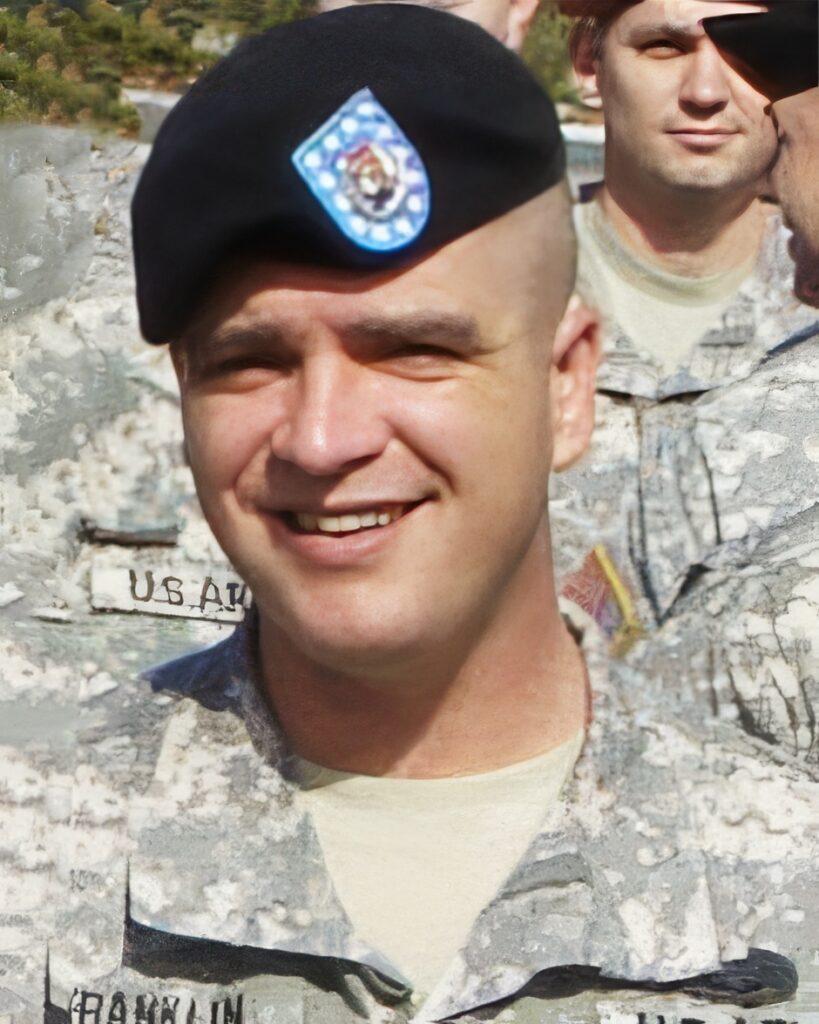
I have found a few folks I haven’t spoken to or seen in about 15 years. It is great to catch up and see where everyone is now and what has been happening since we last served together. I also like military history, and TWS is a great place to ensure that Soldiers of the past are not forgotten and remembered for what they have done.
PRESERVE YOUR OWN SERVICE MEMORIES!
Boot Camp, Units, Combat Operations
Join Togetherweserved.com to Create a Legacy of Your Service
U.S. Marine Corps, U.S. Navy, U.S. Air Force, U.S. Army, U.S. Coast Guard


0 Comments